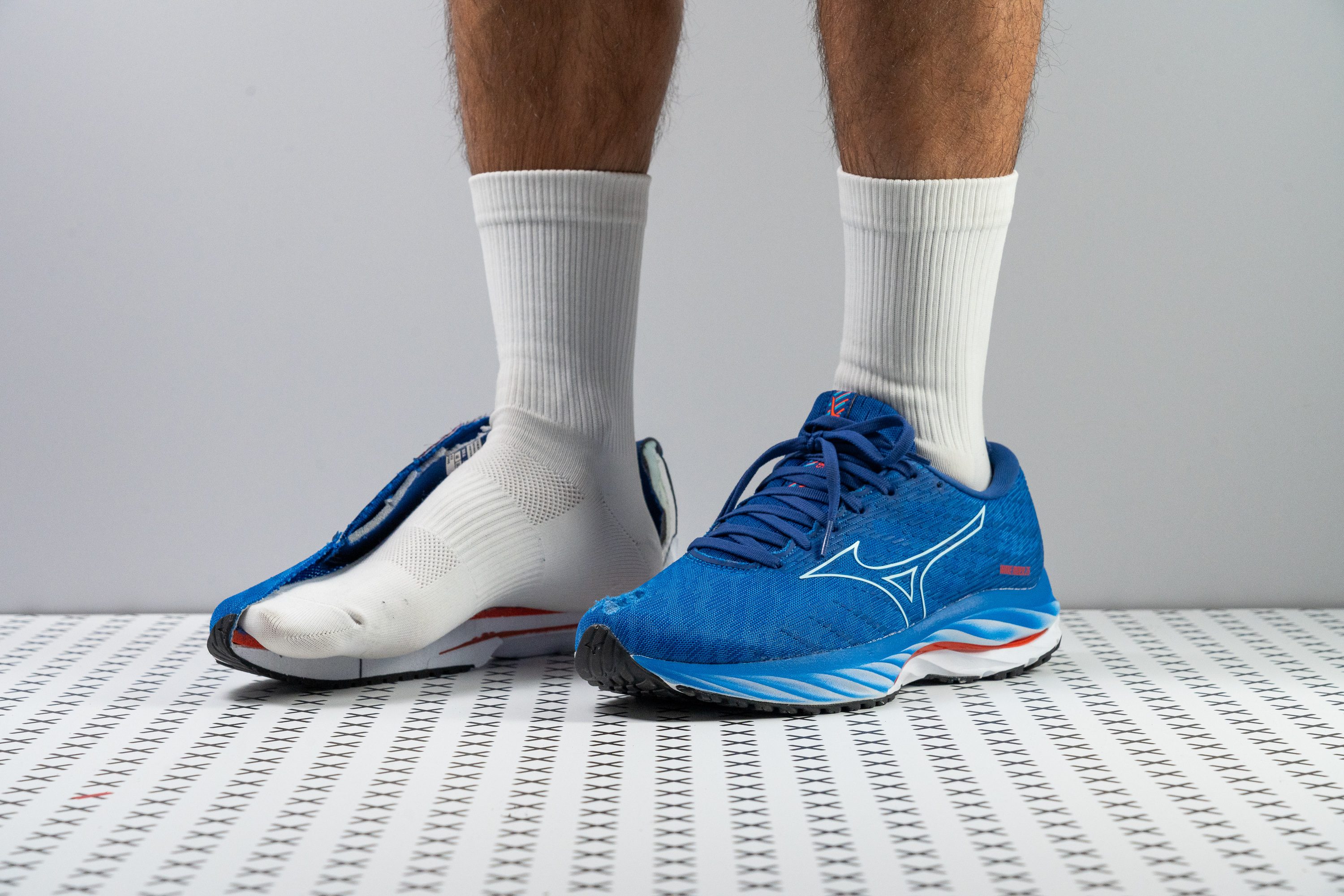Our verdict
Pros
- Comfortable and breathable upper
- Cushioned ride, especially for heel strikers
- Lightweight
- Good lockdown
- Great traction on most surfaces
- Durable
- Dependable daily trainer
- Classy and conservative design
- Eco-friendly
Cons
- Tight around toes
- Sky-high heel drop
- Needs some breaking in
- Not for fast paces
Audience verdict
Comparison
The most similar running shoes compared
+ + Add a shoe | |||||
|---|---|---|---|---|---|
| Audience score | 87 Great! | 89 Great! | 85 Good! | 86 Good! | |
| Price | £140 | £120 | £140 | £100 | |
| Pace | Daily running | Daily running | Daily running | Daily running | |
| Shock absorption | - | High | High | Moderate | |
| Energy return | - | Low | Low | Low | |
| Traction | - | Moderate | High | Moderate | |
| Arch support | Neutral | Neutral | Neutral | Neutral | |
| Weight lab Weight brand | 10.3 oz / 291g 10 oz / 283g | 9.7 oz / 274g 9.5 oz / 270g | 9.1 oz / 258g 9.3 oz / 265g | 10.4 oz / 295g 10 oz / 283g | |
| Drop lab Drop brand | 11.8 mm 12.0 mm | 10.5 mm 5.0 mm | 8.3 mm 10.0 mm | 12.3 mm 10.0 mm | |
| Strike pattern | Heel | Heel | HeelMid/forefoot | Heel | |
| Size | True to size | True to size | - | True to size | |
| Midsole softness | Soft | Soft | Soft | Soft | |
| Difference in midsole softness in cold | Small | Normal | Normal | Normal | |
| Toebox durability | - | Bad | Decent | Decent | |
| Heel padding durability | - | Decent | Good | Good | |
| Outsole durability | - | Good | Decent | Good | |
| Breathability | Moderate | Breathable | Moderate | Moderate | |
| Width / fit | Medium | Medium | Medium | Narrow | |
| Toebox width | - | Medium | Wide | Medium | |
| Stiffness | Stiff | Moderate | Moderate | Moderate | |
| Torsional rigidity | Moderate | Stiff | Stiff | Stiff | |
| Heel counter stiffness | Stiff | Stiff | Stiff | Moderate | |
| Heel lab Heel brand | 39.2 mm 38.5 mm | 40.7 mm 40.0 mm | 37.5 mm 39.0 mm | 37.6 mm 35.0 mm | |
| Forefoot lab Forefoot brand | 27.4 mm 26.5 mm | 30.2 mm 35.0 mm | 29.2 mm 29.0 mm | 25.3 mm 25.0 mm | |
| Widths available | NormalWide | NormalWide | NormalWide | NormalWideX-Wide | |
| Orthotic friendly | ✓ | ✓ | ✓ | ✓ | |
| Season | All seasons | SummerAll seasons | All seasons | All seasons | |
| Removable insole | ✓ | ✓ | ✓ | ✓ | |
| Ranking | #314 Top 46% | #103 Top 27% | #234 Bottom 38% | #197 Bottom 48% | |
| Popularity | #540 Bottom 20% | #278 Bottom 27% | #133 Top 35% | #76 Top 20% |
Size and fit
Size
Mizuno Wave Rider 26 fits true to size (39 votes).
Who should buy the Mizuno Wave Rider 26
Get the Wave Rider 26 if you:
- want a shoe for those comfortably hard days
- are a heel striker looking for a cushioned ride without skimping on responsiveness
- need a daily trainer with enough, but not overbearing, stability control.
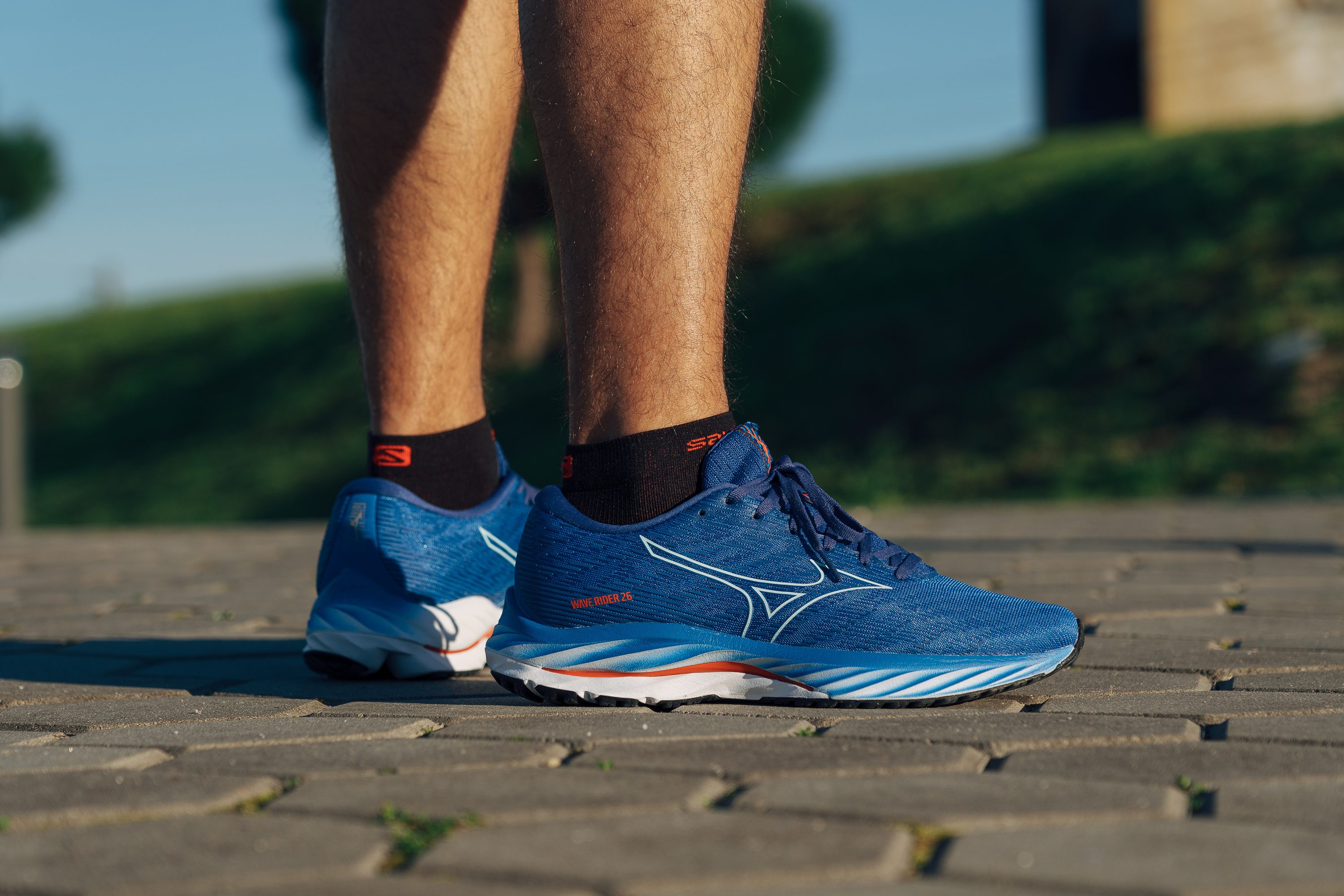
Who should not buy it
For runners who dig the cushioned-yet-firm feel of Mizuno shoes, but find the Wave Rider 26’s high heel drop too much, we recommend the Mizuno Wave Horizon 6 (8-mm drop).
For a more do-it-all shoe that also has the same cushy, grippy, locked-down qualities as the WR26, we propose checking out the Nike Pegasus 39 instead.
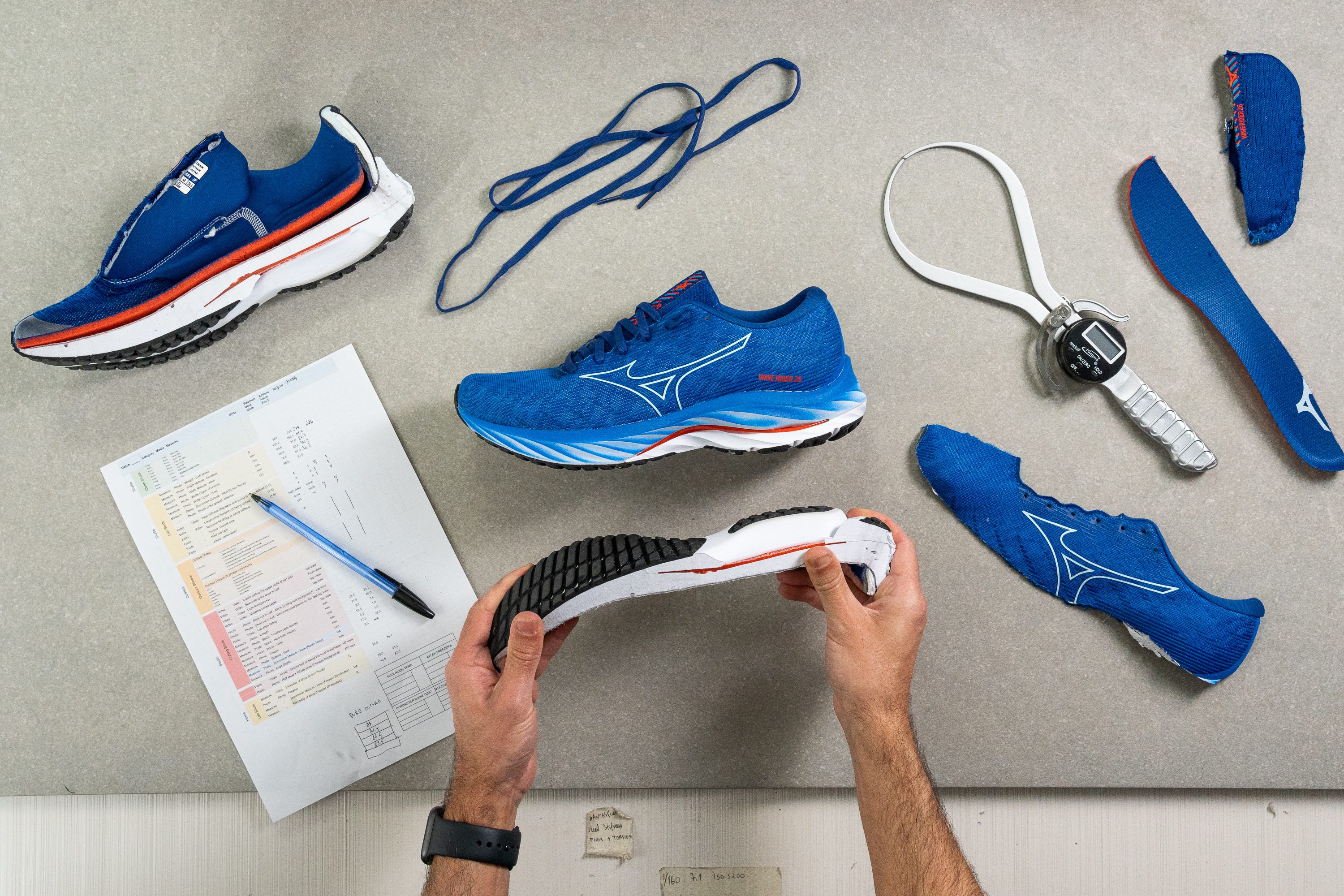
Updates on the Wave Rider 26
Off the bat, let’s take a look at what has changed in Mizuno’s 26th iteration of its Wave Rider collection:
- The slimmed-down and slightly repositioned Wave plate feels less obtrusive and offers an increased energy return
The bright red piece in the middle of the foam is the Wave plate. According to Mizuno, this stiff component creates a more stable platform to minimise injuries and adds responsiveness to the cushioning. You can see how it's been altered in the photos below.
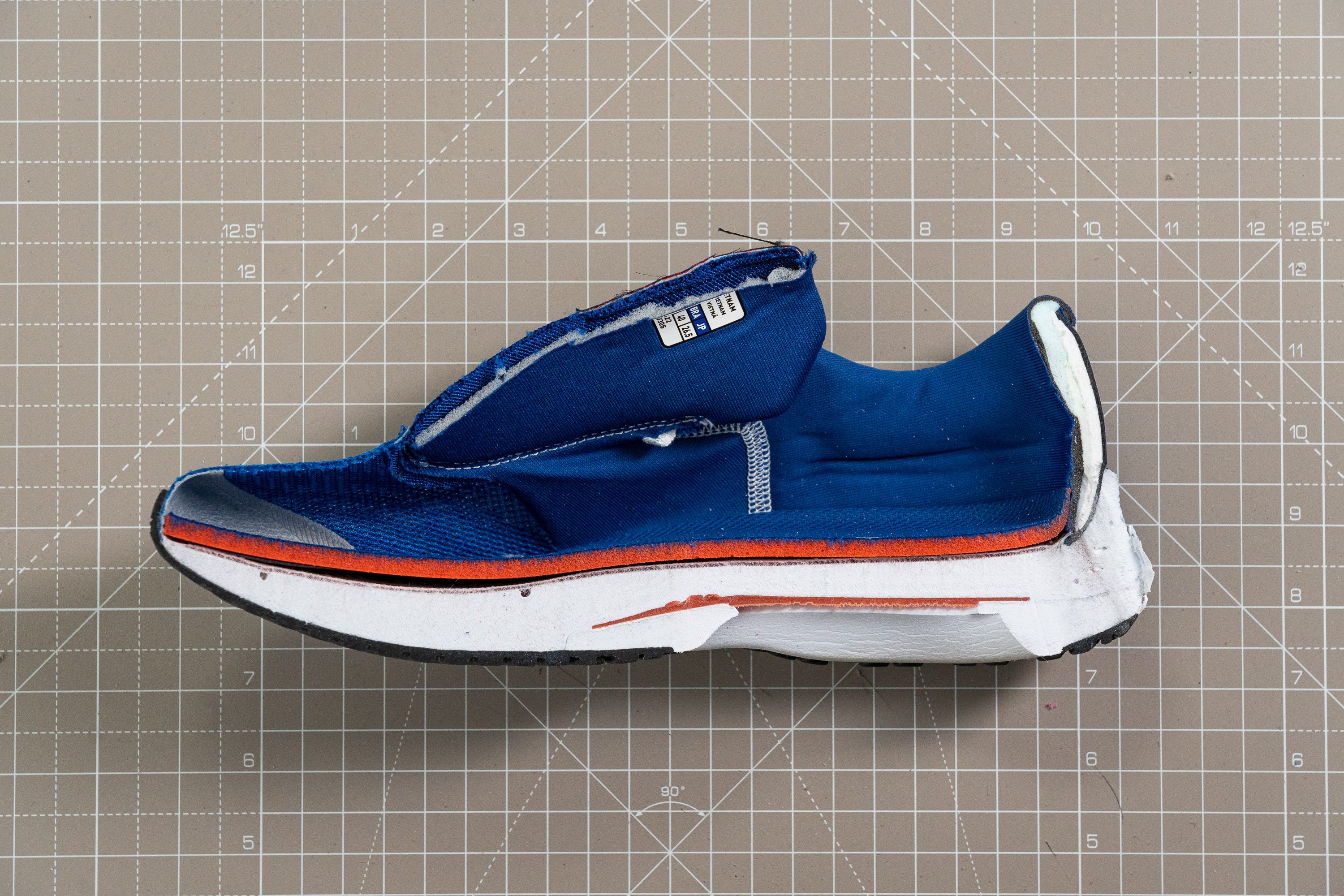
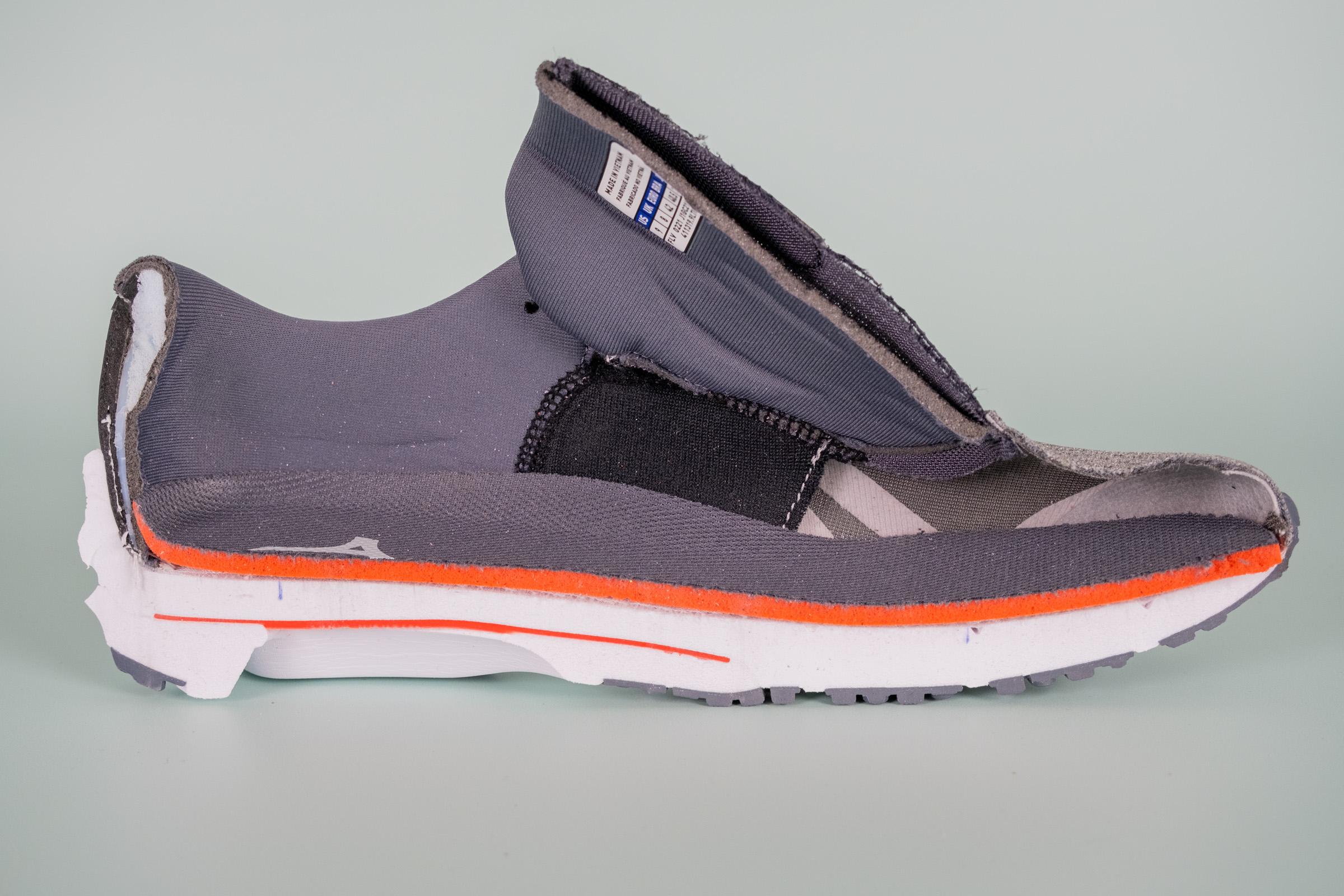
- An additional 2 mm of Enerzy foam to both the forefoot and heel results in much cushier landings
Based on our measurements, the new stack height is now 27.4 mm in the forefoot and 39.2 mm in the heel.
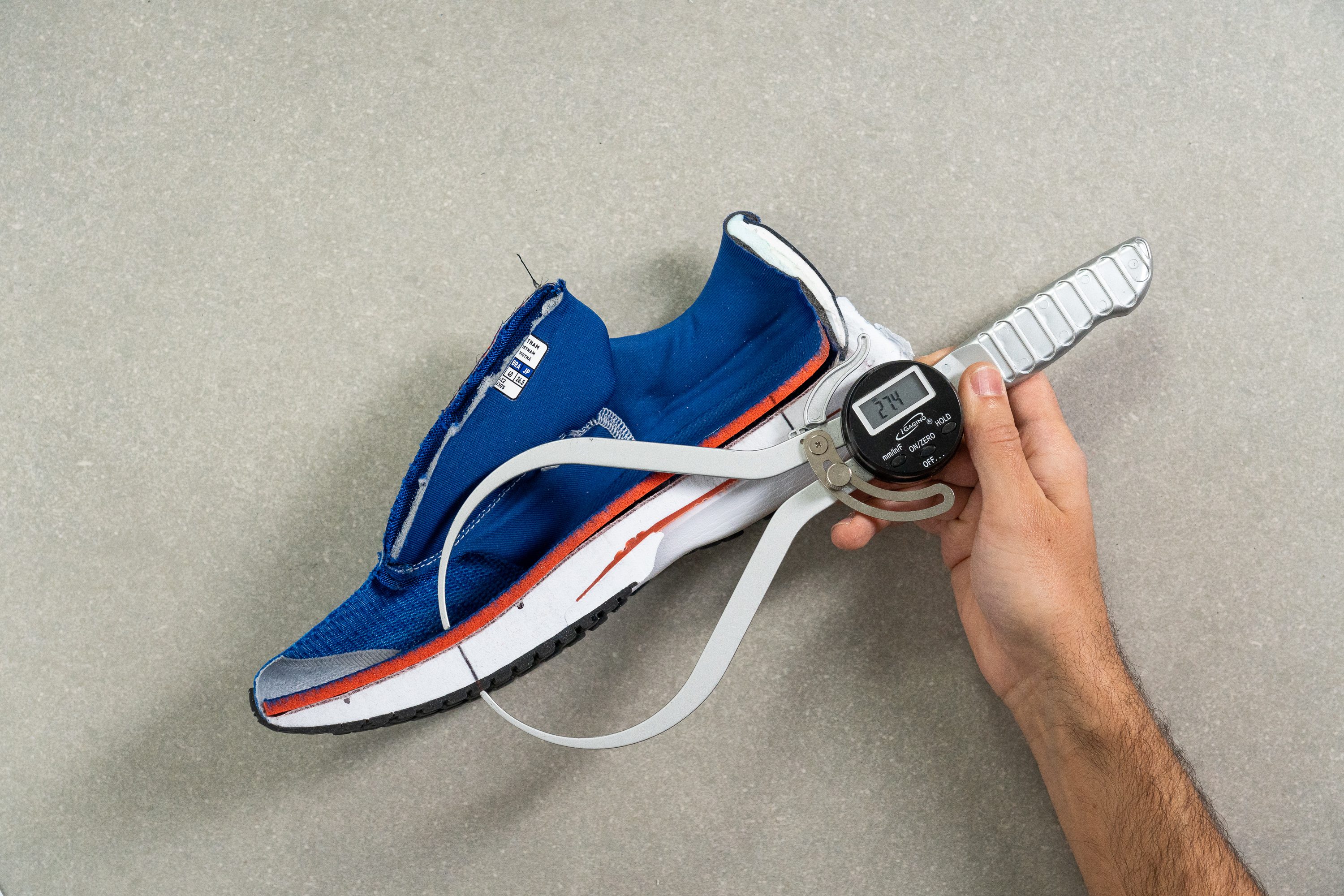
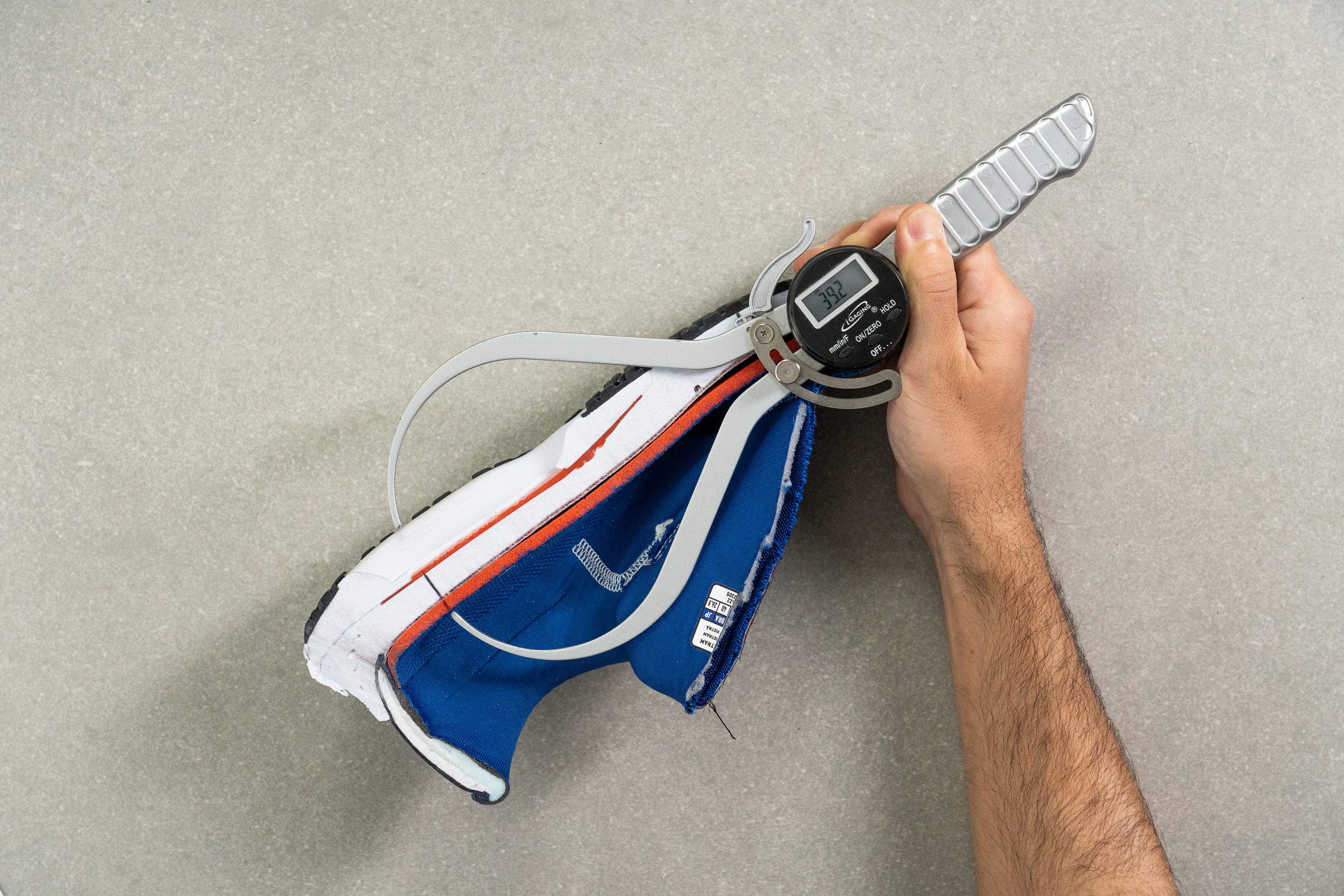
- A softer and thinner Jacquard mesh upper
- A redesigned outsole, with more continuous rubber coverage
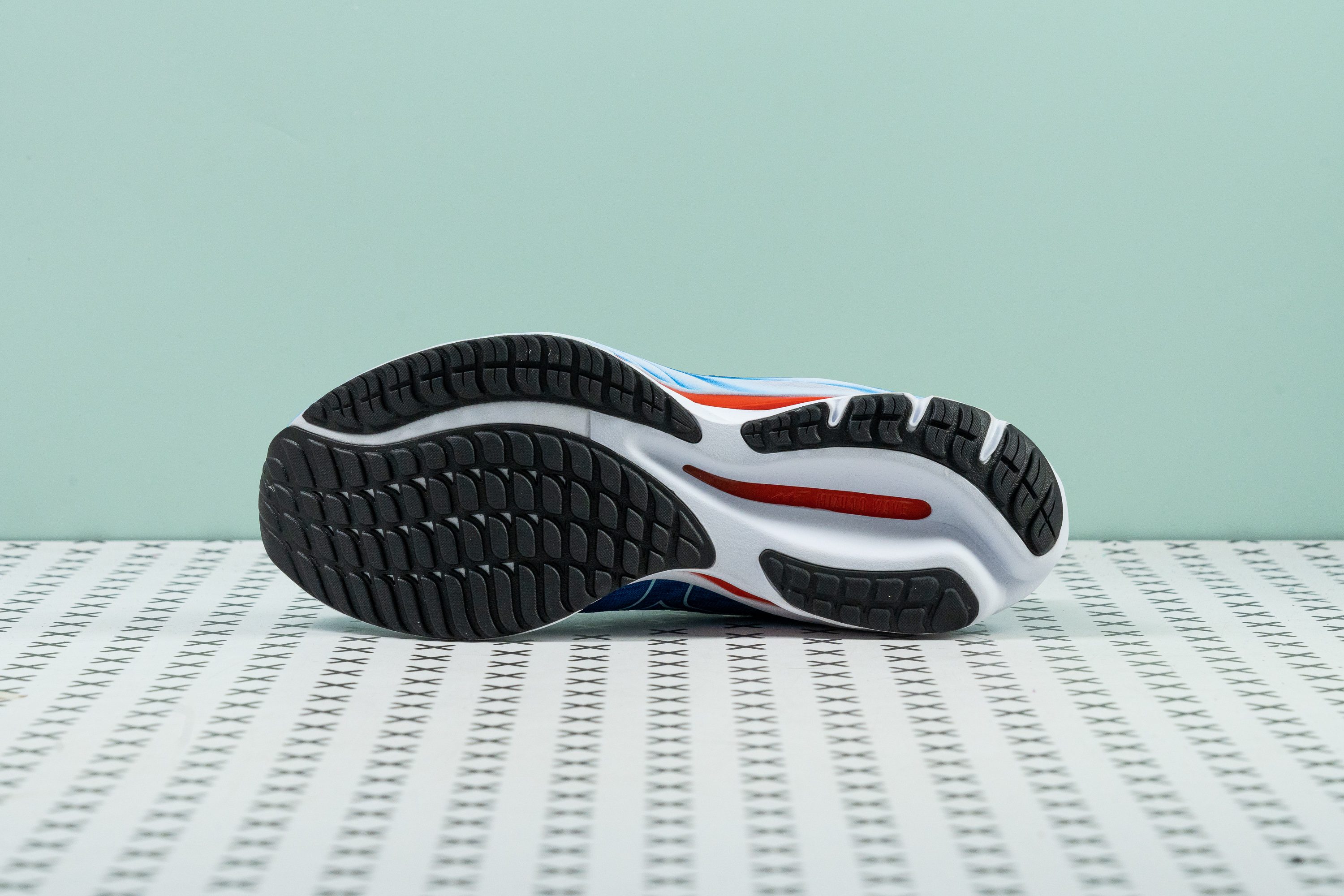
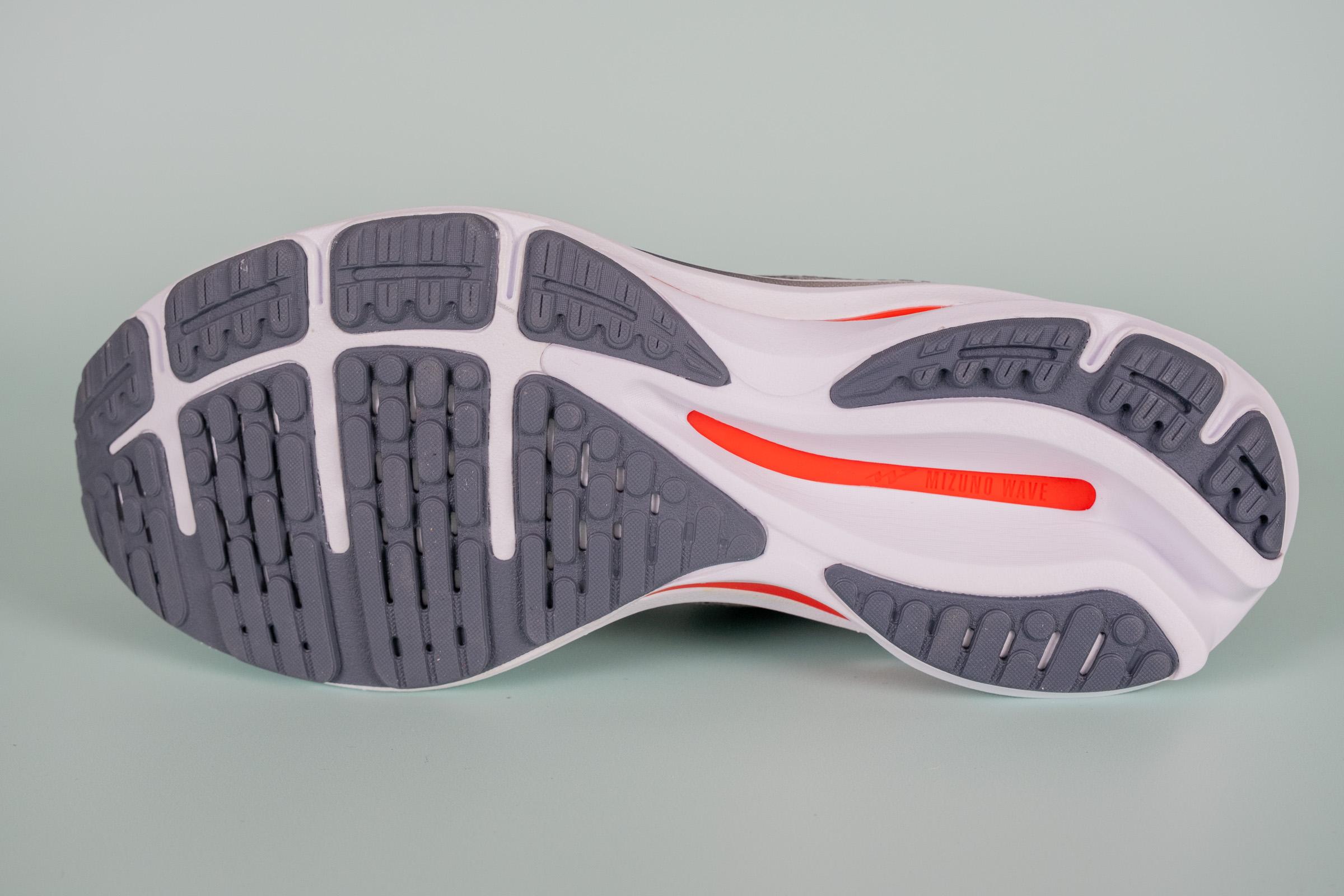
Nice and breathable daily trainer
We were more than happy with the breathable mesh upper of the Rider 26. It kept the interiors well-ventilated and allowed the heat to escape rather quickly.
Assessing how much smoke and light is able to pass through the Jacquard mesh, we rated the shoe's breathability as 4 out of 5 (where 5 is the most breathable).
Comfortable, secure upper
The Mizuno WR 26’s upperâ receives our seal of approval its secure lockdown and precise fit. It provides a nice foothold without being overly snug or causing any potential hot spots. We haven't experienced any heel slippage either.
Checking the shoe's heel counter, we understand the reason behind such a secure heel hold. On a 1-5 scale where 5 is the stiffest, we assessed the shoe's heel counter as 5!
The shoe also features a gusseted tongue which plays an important part in holding the foot in place.
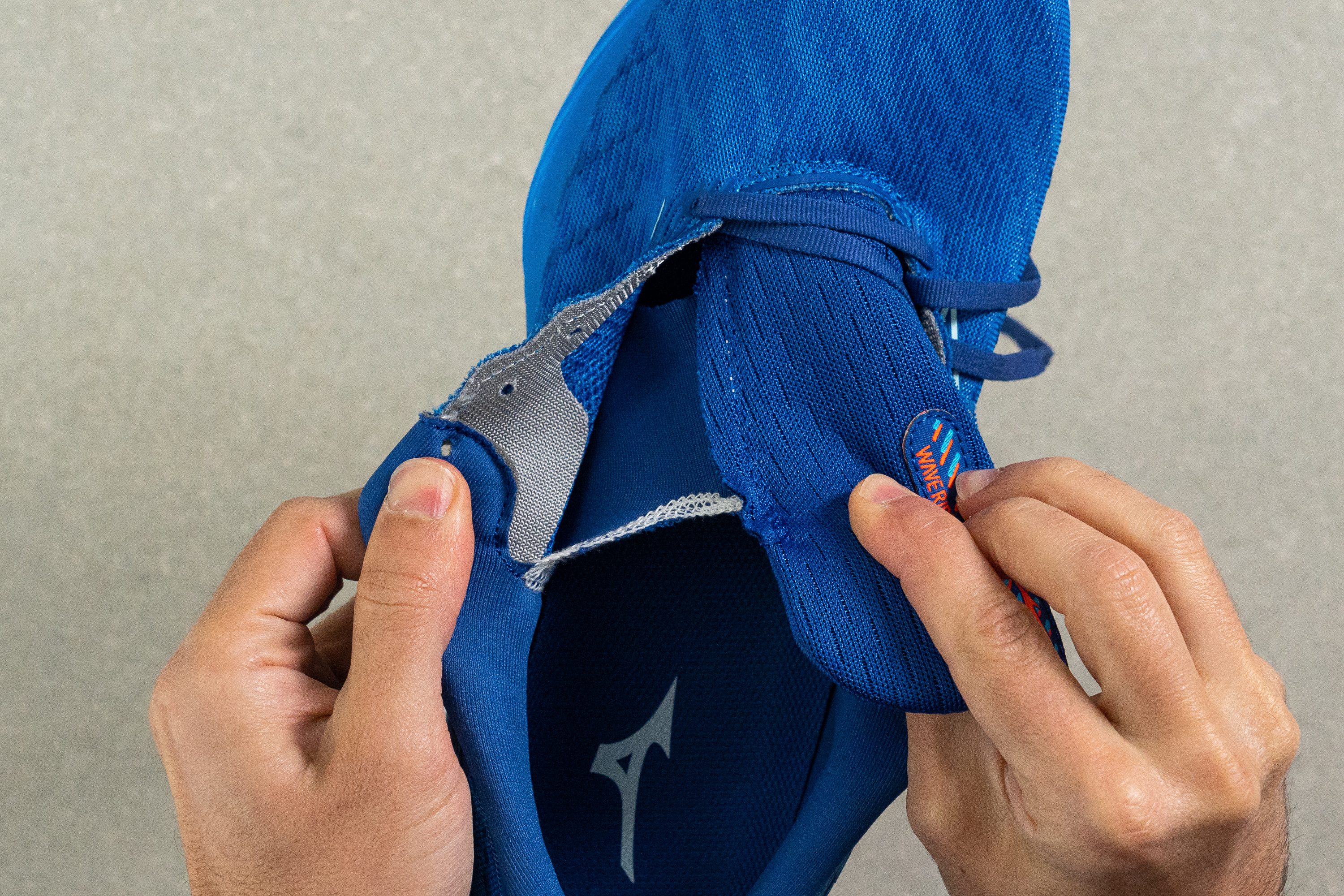
Precise fit but Wide is available
Having medium-width feet, we felt right at home in the Mizuno WR 26.
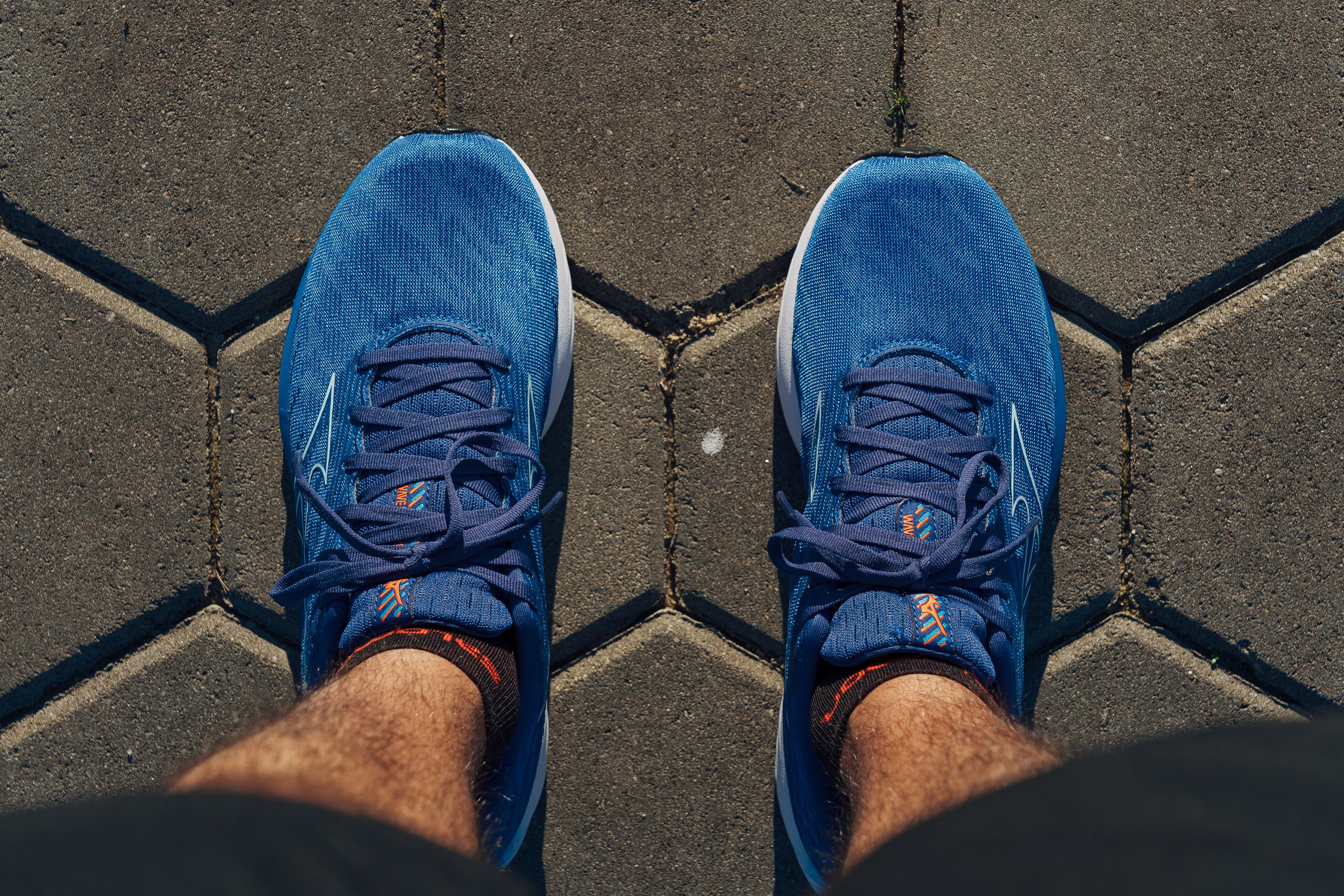
When we measured the widest part of the forefoot (100.1 mm), it turned out to be on the wider side. In fact, it is 2 mm wider than the average.
But due to the tapered toebox, we can see how wide-footed runners can feel constricted in this Mizuno shoe. Luckily for them, the Rider 26 is available in wide.
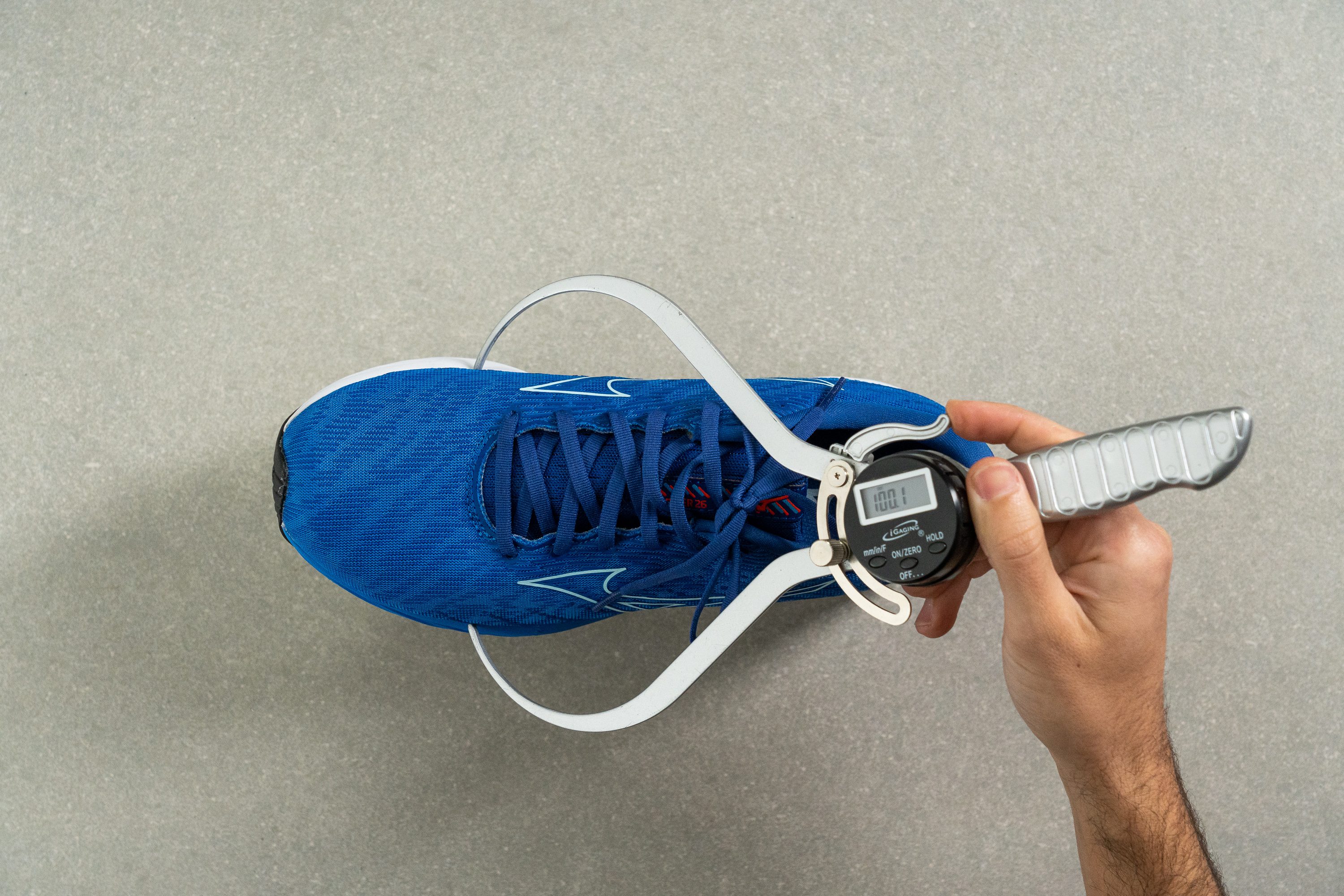
Max cushioning, Mizuno-style
From our experience with the Mizuno Wave Rider 26, we believe that this is a pretty dang comfortable shoe! The added 2 mm of Enerzy foam definitely elevated the WR26’s cushioning.
And while it isn’t nearly as soft as most supercritical or Pebax-foam shoes, we found it to be softer than the previous Wave Riders.
Our durometer measurement of the foam softness fully supports our experience. With a reading of 20.5 HA, the Wave Rider 26 is softer than road running shoes on average by a good 20%!
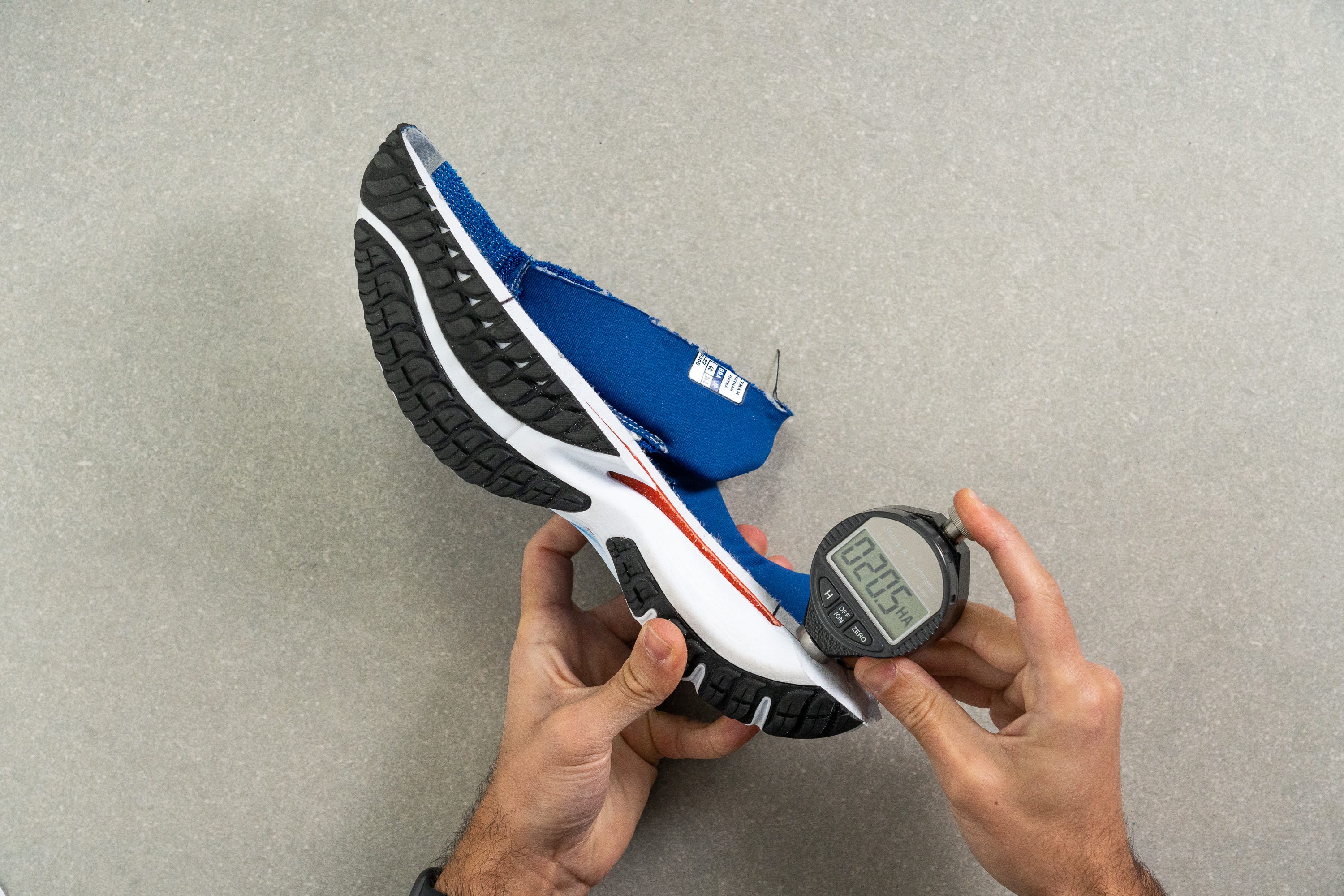
What's more, the foam doesn't get that much firmer when exposed to cold temperatures. After 20 minutes in the freezer, the foam only got 16% harder. Even in its frozen condition, the shoe remains 16% softer than most midsoles at room temperature.
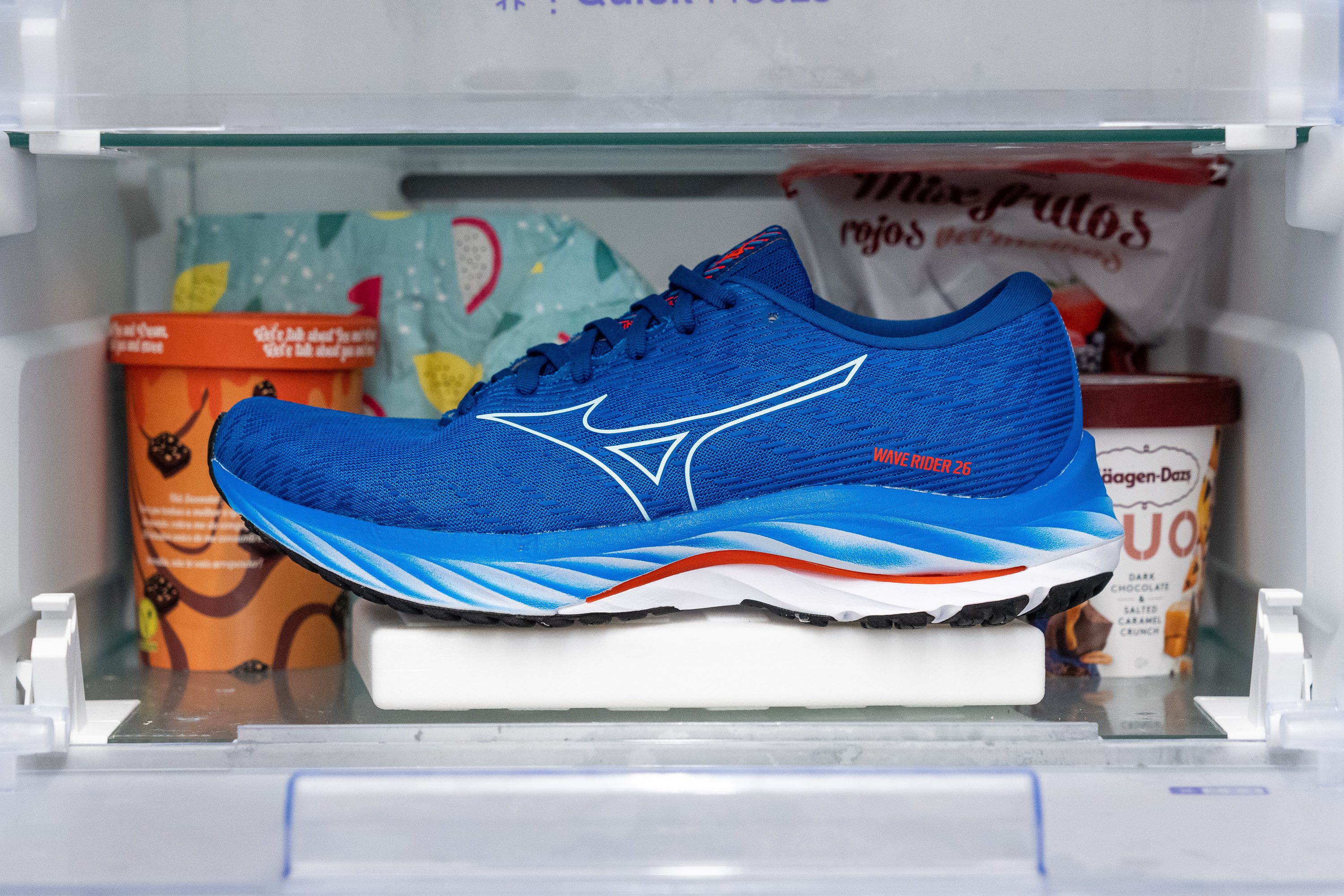
We also felt like the shoe managed to provide a decent level of stability for a neutral shoe, despite its softness.
Huge drop!
As with the previous version of this Mizuno staple, the 26’s heel-to-toe drop remains at 12 mm.
We foresee that for most runners this is going to feel a bit too steep and pronounced. It feels a lot like running in a high-heeled shoe, with the foot being pushed forward by the elevated heel.
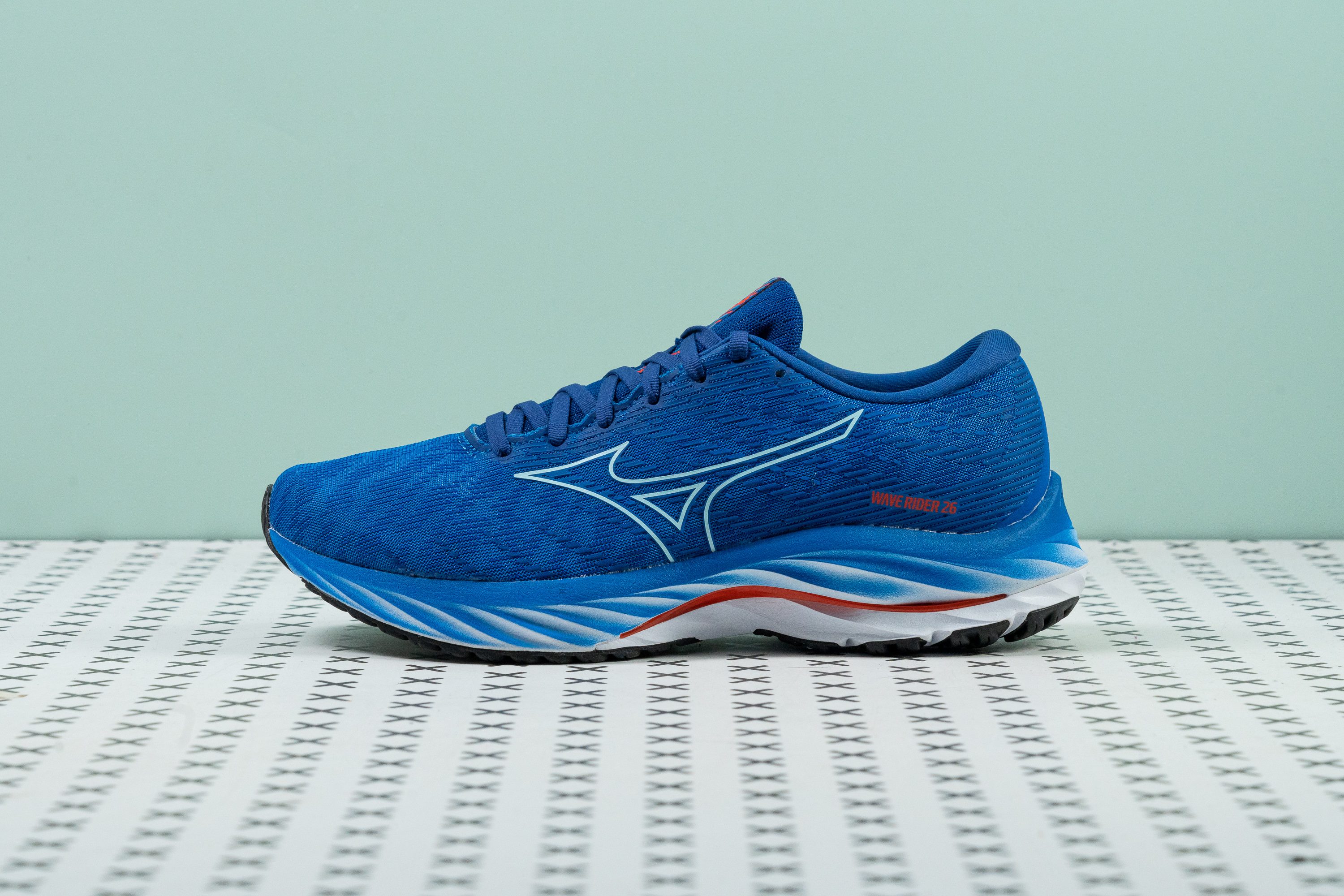
But if you are a heel striker or are simply used to higher drops, the Wave Rider 26 can make a solid daily trainer.
Thanks to the slimmer and repositioned Wave plate, you can expect a smooth, energetic, and distinctly propulsive ride.
Foot bends effortlessly in the Rider 26
The Wave Rider 26 strikes a balance between stiffness and flexibility. Measuring the shoe's resistance to bending, we found it to be 8% more pliable than the average.
In a manual stiffness assessment, we ranked the shoe as 3 on a 1-5 scale where 5 is the stiffest. This is a reasonable level of stiffness for a neutral shoe. It helps to make the ride feel more stable without feeling too stiff.
Surefooted strides, even in wet conditions
We also appreciated the WR26’s new outsole and its more continuous and interconnected rubber coverage. We believe that this resulted in better traction and added wear resistance.
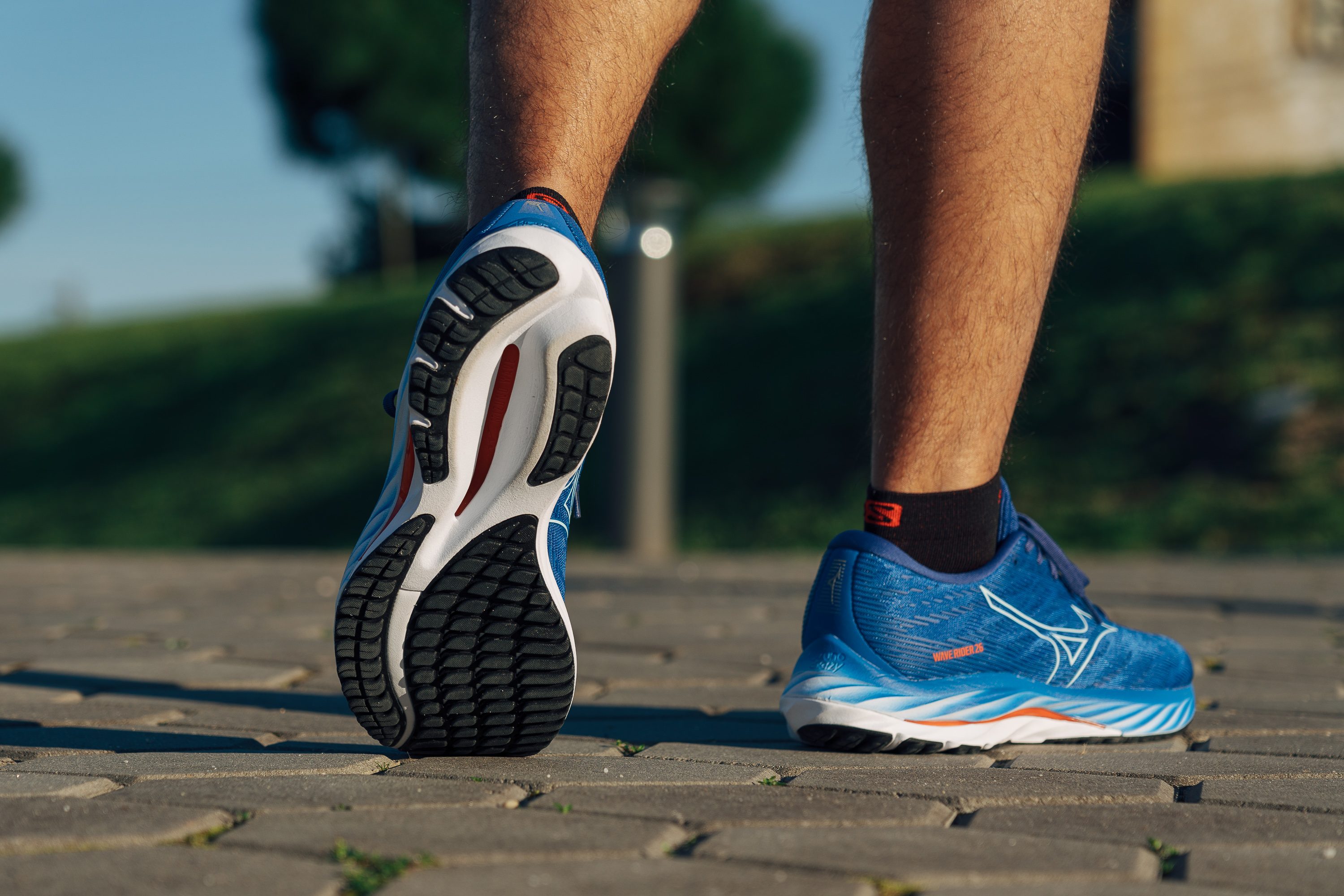
Running on misty mornings, wet fallen leaves, and puddles was not a problem for this Mizuno shoe at all!
Impressively light
Coming in at 10.3 oz (290g) in a men’s US size 9, the 26th Wave Rider has gained some weight compared to its predecessor (the Wave Rider 25 weighs 9.5 oz/270g).
This is the trade-off that the brand made to add cushioning and rubber coverage to the shoe.

Even though the Wave Rider 26 doesn't necessarily feel heavy on the run, keep in mind that it is a little heftier than the average daily trainer (9.7 oz/274g).
The Wave Rider 26 is best for middle miles
The Wave Rider series has long been heralded as a tried and true daily workhorse, and the 26 is no exception. We acknowledge that its strength lies in that sweet spot between long slow runs and fast efforts.
High quality at a slightly higher price
At £140, the Mizuno Wave Rider 26 is not cheap, especially with the average daily trainer costing about £130.
However, given the quality of materials and craftsmanship and the comfort provided by the upper and cushioning, we believe that it is well worth the investment.
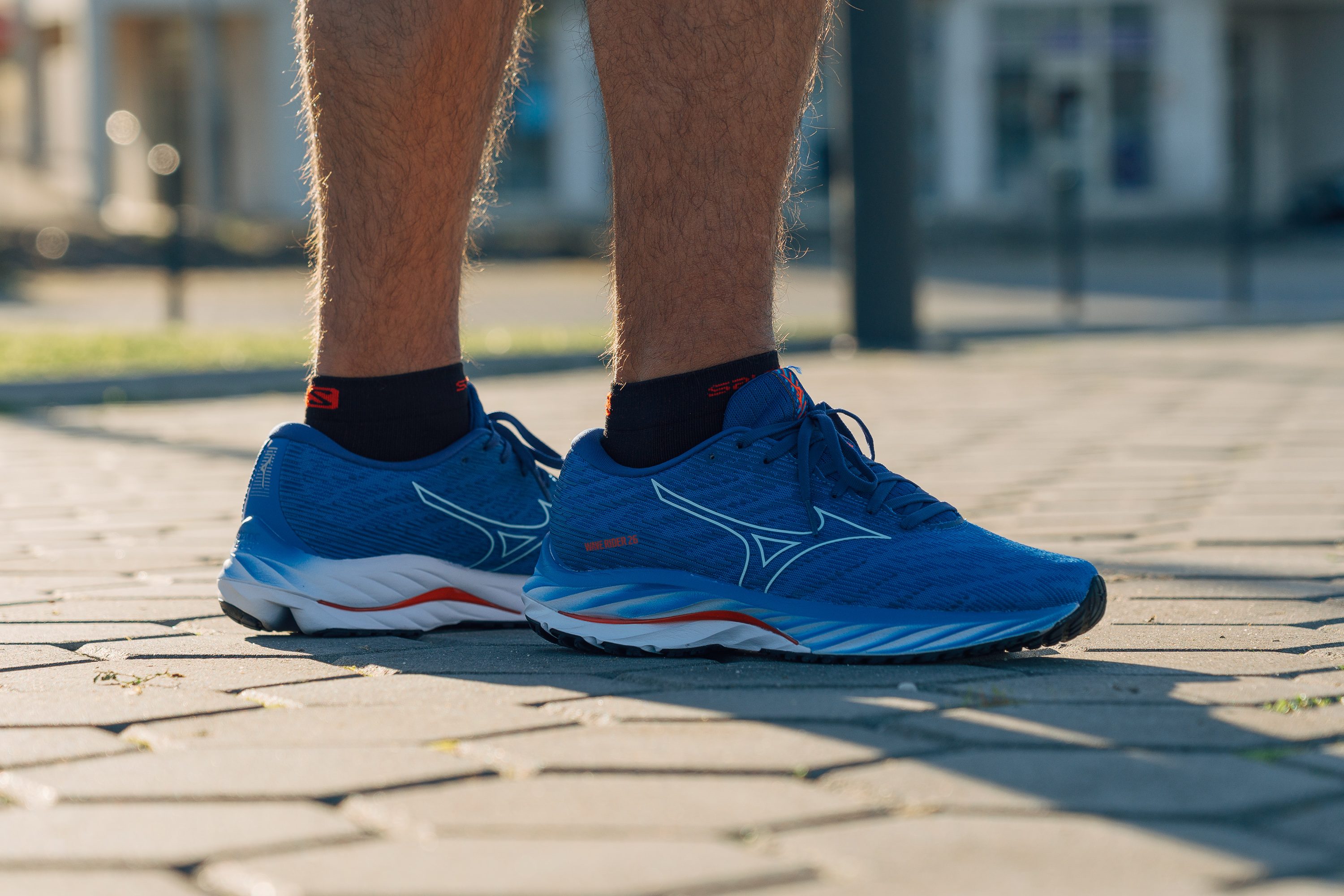
A pleasant bonus: reflective elements
The Mizuno logo on the heel counter lights up in dark conditions.

